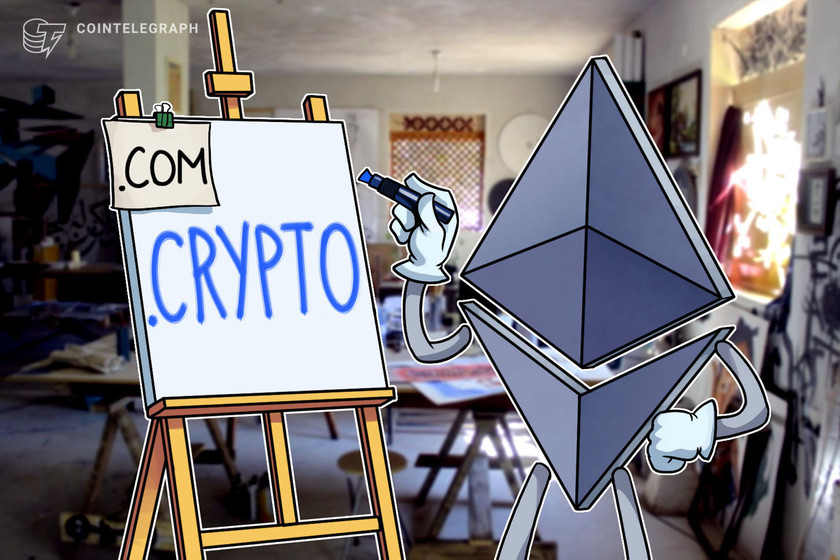Hiring top crypto talent can be difficult, but it doesn’t have to be


How to identify top crypto talent in the recruitment process: Hire a diverse range of people who have the required attributes without lowering your standards.
Building a career or constructing a team in decentralized finance (DeFi) and crypto relies on finding talent, skills and the right attitude anywhere, in anyone. While this is no different than other industries, what makes ours unique are the much-needed, specialized skill sets combined with finding a good culture fit in an international and remote setting.


Despite recent turbulence in markets, crypto companies continue building and growing. The increased energy and legitimacy in the industry over the years has many people wanting to make the switch from Web2 to Web3. This requires recruiters to sift through hundreds of applicants every month, but how do you find the right people who are enthusiastic about the ethos of the industry and excited to build impactful technology? Here are a few recruiting strategies that can help and a couple of things to avoid.


Hire for attitude
No matter the industry, the right attitude can go a long way. Work in crypto and DeFi is often international, remote, fast-moving and non-traditional. Its nature is decentralized, so work environments tend to be the same.
We lean into hiring people who are kind, team-oriented, self-directed, energetic, innovative and deal with mistakes and challenges in the right way. But how do you identify those habits and the right attitude in someone during the hiring process?
There are a few ways to do this. Ask them what they value. What do they find important in terms of culture, teamwork and others’ attitudes?
To drive at these responses, it can help to ask the candidate the same question in a few different ways and then measure for sincerity. If they keep coming back to topics or statements that feel genuine, then they probably are. If they haven’t thought of what values and cultural elements they look for in their next team, that could be a red flag.
It is also helpful to dig into how candidates plan to succeed in a remote and international setting. (Our team has people in nearly a dozen different countries around the world.) How have they managed with diverse time zones? What is their attitude around being flexible for other teammates’ work/life boundaries? We’ve learned that successful remote work requires people with attitudes that embrace flexibility and understand how to self-direct with asynchronous communication.
Related: How to get a job in the metaverse and Web3
Maintain a deeply thorough interview process
We’ve been told many times that our interview process is one of the most deliberate and in-depth recruiting processes candidates have experienced. It’s common for a candidate to speak to up to four current members of the team during the interview process. It’s not meant to be grueling; it’s meant to be explorative, transparent and helpful — to both sides.
This process is by design. Several conversations, practice scenarios, exercises and touchpoints that involve several current team members create more opportunities to get to know each other. The more you talk, the more you can identify strengths, weaknesses, motivations and attitudes. Formal education hasn’t yet caught up to crypto, so it’s challenging to assess educational and professional experience the same way you can in some traditional industries. This process needs to give people equal opportunity to showcase their skillsets, culture fit and talents.
Our experience building a remote, global team has proven that hiring requires transparency and respect. The process is a two-way street. You’re choosing each other. If the candidate ends up choosing another role because your process is too involved or lengthy, then so be it.
Related: Bear market: Some crypto firms cut jobs, while others aim for sustainable growth
It’s important to maintain these intentional, strategic and thorough processes consistently. Hiring the wrong person carries a larger cost than hiring the right person, slowly.
Don’t hire out of desperation
While the industry feels like it’s in constant flux and growth can happen suddenly and quickly, resist the urge to hire for the sake of growth alone. It’s tempting to lower your hiring bar when talent is hard to find, but success emerges when you keep expectations high.
As mentioned above, a thorough process of interviewing and recruiting will pay off down the road by securing the right people for the right reasons. Having a position vacant is better than having the wrong person in the position for a brief time.
Pursue diversity (in all its forms)
Crypto and DeFi are improving from a diversity perspective, but it still has a long way to go, particularly in science-, technology-, engineering- and mathematics-based roles. Any visit to a crypto or DeFi event or conference shows that participation is heavily weighted toward white men. This is holding back our organizations, communities and industry.
Teams that are more diverse are stronger. Teams with more women, more people of color, more people of various geographic or national backgrounds and sexual or gender orientations will achieve more innovation, understanding, productivity and longevity. A diverse team will cultivate a diverse ecosystem of ideas and achievements.
This requires developing strong cultures and policies that are inclusive, supportive, professional and open-minded and practice zero tolerance for prejudice or discrimination in both organizational and community behavior.
The benefit of having a remote-first company is that you can hire anyone, anywhere. So, take advantage of that but be sensitive to how your team and industry may be felt and experienced by others with their own unique experiences.
Related: New industry, new rules: Building the metaverse without bias
To achieve this, start with policies and philosophies that are inviting and inclusive. Then you need to think outside the box to find diverse candidate pools. For example, look for women-led decentralized autonomous organizations, hackathons or Twitter communities, and be a champion where you can for underrepresented groups in the industry. If you can’t find them, help to build them.
Don’t shy away from people who are unfamiliar with crypto
Crypto and DeFi are obviously highly complicated industries that require specialized skill sets. But that doesn’t mean organizations should restrict themselves to recruits who are already familiar with crypto or active in it.
There are plenty of highly skilled Web2 people involving themselves in crypto as their hobby. Search for meaningful contributors, self-starters and those willing to learn. That’s what this industry is all about. With the right attitude and ethos, blockchain and crypto knowledge can be learned. Seek to embrace things such as paired programming, internal learning sessions and frequent performance reviews to continually develop talent.
While early weeks and months can and will feel overwhelming to non-crypto recruits, people with the right attitude and objectives will learn, especially if they are being mentored and guided by a welcoming, understanding and strategic team. Patience is a virtue. (Engaging with non-crypto folks will also nurture diversity.)
The industry has grown so fast over the last five years that the talent pool criteria will have to expand, or else we will run out of options, especially in the bear market that we now find ourselves in.
This article does not contain investment advice or recommendations. Every investment and trading move involves risk, and readers should conduct their own research when making a decision.
The views, thoughts and opinions expressed here are the author’s alone and do not necessarily reflect or represent the views and opinions of Cointelegraph.





